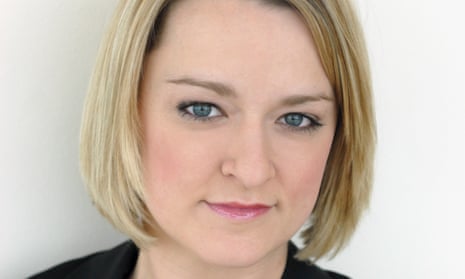The BBC has launched a pre-emptive defence of how much it pays its leading talent, claiming fewer than a quarter of 1% of its TV and radio stars are on more than £150,000 a year.
Anticipating the potential furore that will come when it publishes the figures on Wednesday, the corporation is striving to minimise the impactof their disclosure.
The publication comes following sustained pressure from the government for the corporation to increase transparency on pay. Last year David Cameron ordered the BBC to disclose what it paid on-air talent earning more than £450,000 a year. This is likely to include stars such as Chris Evans, Fiona Bruce and Graham Norton.
But the figure was slashed to £150,000 under Theresa May in a move that means what the corporation pays a series of other well known faces – who are likely to include its political editor, Laura Kuenssberg, and the Today presenter, John Humphrys – will also be disclosed.
The latest BBC annual report records that 109 TV and radio presenters earn above £150,000 – more than the prime minister. It is thought that about 30 of those on the higher salaries work in news and current affairs.
Compelling the corporation to disclose the figures – which will also apply to some writers and composers who work for the corporation but not those employed by the BBC’s commercial arm– has proved controversial. Several rival broadcasters, notably Channel 4 and Channel 5, have publicly criticised it. ITV’s programmes chief, Kevin Lygo, called the proposal a “mean-spirited, nosey way of looking at things”.
The BBC’s director of content, Charlotte Moore, told last year’s Edinburgh Television Festival: “The outcome could well be that talent fees will go up because if everybody knows what everybody is being paid they will go ‘I want to be paid that.’”
While the BBC has long published what it pays management, this is the first time its TV and radio stars will have their remuneration disclosed. The prospect does not sit well with several of the corporation’s best known names.
Presenter Andrew Marr said recently: “It’s uncomfortable for all of us. I’m well paid but I’m much less overpaid, perhaps, than people working for rival organisations who won’t go through this process.”
The BBC’s attempt to deflect criticism of what it pays its top stars will be subjected to close scrutiny. The quarter of 1% figure is based on comparing what the broadcaster pays its leading stars with some 43,000 employees across the corporation who are also on talent contracts. A more tightly defined comparison would produce a significantly larger percentage.
Media analyst Claire Enders said that forcing the corporation to publish the figures was the result of a Tory government bowing to a campaign waged by the Daily Mail: “109 people who make £150,000 a year – I’m sure the number is five or six times that at Sky and Sky has 21,000 employees in the UK. There’s this view that people who work for the BBC should be paid the same as the lowliest of civil servants and maybe they should even be doing it for free. This has been a non-issue for so long it’s unreal.”
The BBC’s supporters insist that it pays less than its competitors while striving to deliver high-quality content in a competitive market which, along with the likes of Sky and ITV, is now being disrupted by well-resourced newcomers such as Netflix and Amazon.
They claim that the corporation aims to pay its senior managers less than the market rate while those at the top of the organisation are paid less than half of what their commercial rivals receive.
In a time of austerity, when many people’s income is falling in real terms, the BBC is keen to show that it has been bringing salaries down across the board.
“The bill for top talent is down 10% year on year, and down by a quarter over the last five years,” a BBC source said. “The amount we pay the very highest earners has dropped by 40% across the same period. At the same time, there has been significant cost inflation across the industry, so the BBC has made savings in an environment where costs are significantly up.”
The source added: “We know that there are big payments paid to some of Britain’s top stars, presenters and journalists. These are people are the top of their profession and at the top of their game. Every piece of research the BBC has ever done shows the public supports having great people on the BBC.”
Many Tories dispute the corporation’s claim that forcing it to publish what it pays its top talent is tantamount to a “poacher’s charter” that will see stars go elsewhere.
“If somebody becomes so successful that they can demand a very high salary, great,” the then culture secretary, John Whittingdale, told the Telegraph last May. “If they can go and get paid a huge amount on another channel, let them do it. The BBC shouldn’t need to feel it has to match the competition to keep somebody.”
